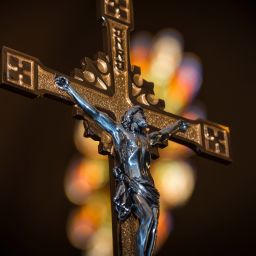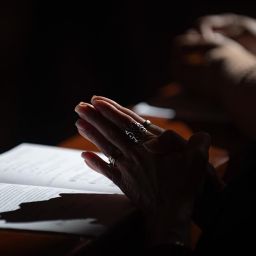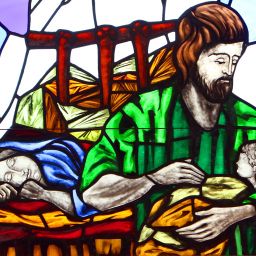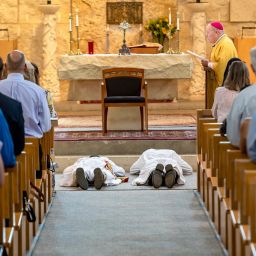By Father Thomas Esposito
Special to The Texas Catholic
A popular praise-&-worship song takes its title from the opening words of Psalm 89: “I could sing of your love forever.” The song stirs emotions to a blissful pitch of gushing adoration for the loving and healing God who allows us to lift our hands daily in tranquil praise of His never-failing mercy.
I suspect that most singers of this pleasant tune do not realize that the psalm it inspired is an anguished lament heaved at a God who permits ruinous destruction to body and soul.
For 38 verses, sure enough, the psalmist praises the steadfast love of the mighty Lord who rules earth and sky: “Lord, God of hosts, who is like you? Mighty Lord, your faithfulness surrounds you […] Yours are the heavens, yours the earth; you founded the world and everything in it” (Ps 89:9, 12). Awestruck wonder is the dominant note repeated throughout the verses voicing the eternal promise God makes to David and his royal offspring: “By my holiness I swore once for all: I will never be false to David. His dynasty will continue forever, his throne, like the sun before me. Like the moon it will stand eternal, forever firm like the sky!” (Ps 89:36-38).
But these sweet statements of joyful confidence are merely the sunshine of the bygone past, wistful memories that stab the psalmist’s soul as he endures violent thunderstorms that have obliterated his light. The entire psalm pivots at verse 39, when the psalmist unleashes a frighteningly blunt torrent of words against the Lord: “But now you have rejected and spurned, been enraged at your anointed. You renounced the covenant with your servant, defiled his crown in the dust. You broke down all the city walls, left his strongholds in ruins. All who pass through seize plunder; his neighbors deride him” (Ps 89:39-42).
The king, once secure on his throne, has lost his city, and his cry of desperate anger channels the lament of his entire people. Note the severity of the questions hurled at the God of Israel who has allowed Israel to be conquered and plundered: “How long, Lord? Will you hide forever? Must your wrath smolder like fire? Remember how brief life is, how frail the sons of man you have created! What is man, that he should live and not see death? Who can deliver his soul from the power of Sheol? Where are your former mercies, Lord, that you swore to David in your faithfulness?” (Ps 89:47-50). The concluding verse could easily be read with smoldering irony, the exclamation marks in the English translation potentially conveying a mocking lack of trust: “Blessed be the Lord forever! Amen! Amen!” (Ps 89:53). This latter part of the psalm doesn’t receive any coverage in the peppy praise-&-worship song.
And yet God undoubtedly prefers such sincere cries of rage to sappy declarations of affection. The entire Bible, and the book of Psalms in particular, is littered with audacious objections tossed up to God by men and women who are ravaged by sickness, failure, and death, finding no consolation in the supposed concern of the mighty Lord for them. Abraham, Moses, Jonah, Job, Mary Magdalene, Martha – all of them cry “out of the depths” (Ps 130:1) of human misery, even if they fear that all lights of hope have perhaps been extinguished. Yet their hurling of broken sadness and confusion at the Lord creates an opening for dialogue; even if God appears totally absent to them, the direct appeal of “Why, Lord?” is a form of prayer that keeps communication open with the God who is always inscrutable mystery to us.
A carefully reasoned explanation for our afflictions is rarely given by the transcendent Lord to our complaints. Silence does not always appear to us as a refuge; yet the silence of the Son, whose arms are open on the cross and whose side is split to pour out the love of His sacred heart upon us, is the answer to every misery the human experience can endure. Christ Himself is the psalmist who gives us His words to adopt as our own: “Cast all your cares and burdens on me,” he encourages gently in another psalm of lament, “because I care for you” (Ps 55:23; 1 Peter 5:7).
Father Thomas Esposito, O.Cist., is a monk at the Cistercian Abbey of Our Lady of Dallas and teaches in the theology department at the University of Dallas.















